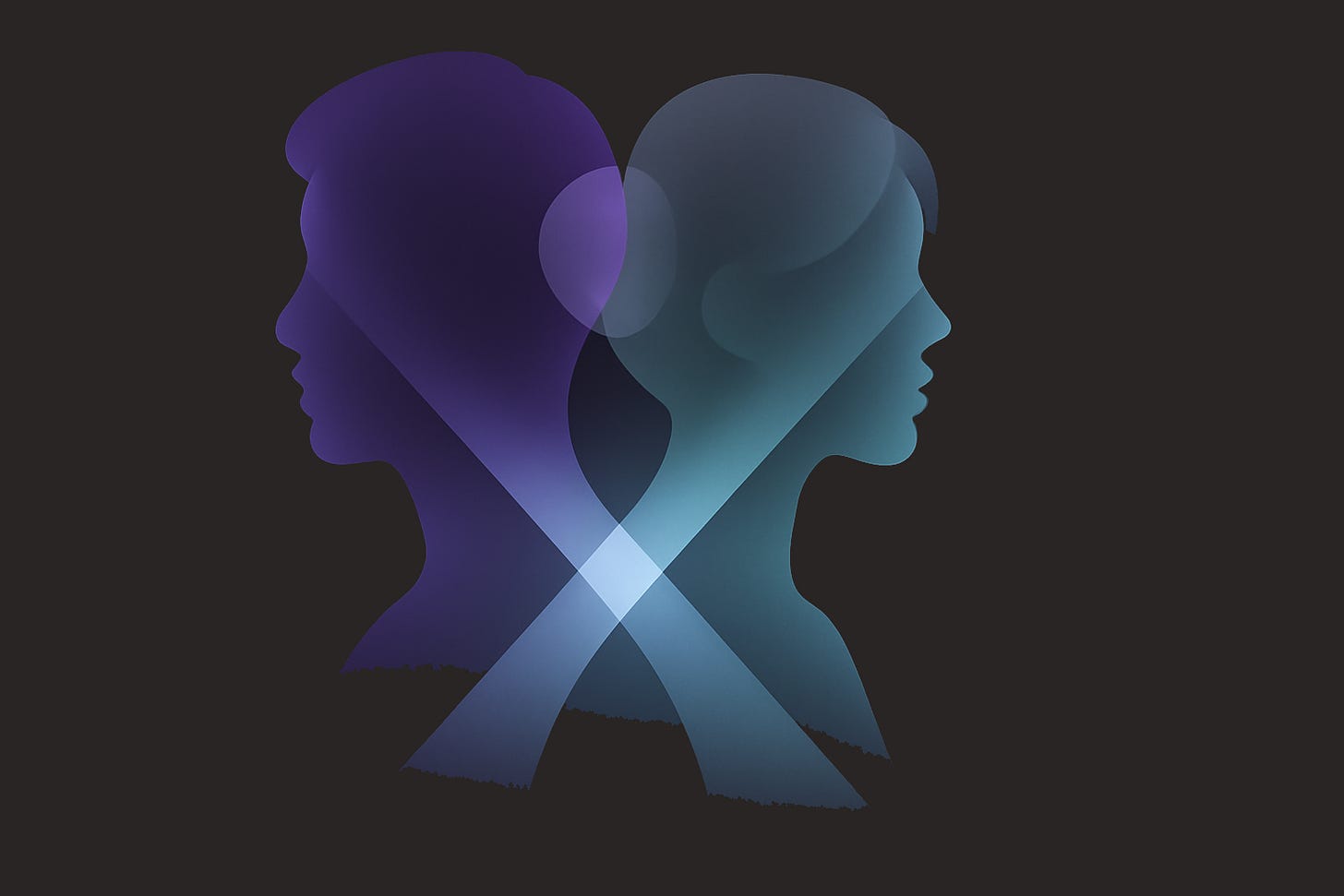The Grind, The Twin and What Comes Next.
Exploring how the shift from knowledge hoarding to knowledge flow is reshaping work, collaboration, and our role in the age of AI.
Imagine a digital version of yourself. A precise, tireless twin that writes like you. Speaks like you. Negotiates like you. Decides like you.
In some sectors, this isn’t science fiction anymore. You already know that:
Sales reps already have AI copilots that mimic their pitch styles.
Customer service agents work alongside bots that replicate their tone and empathy cues.
Analysts in finance and consulting use AI that drafts reports and forecasts in their voice.
The AI twin is creeping in where workflows are structured, repeatable, and measurable. That makes more jobs eligible than most people think. McKinsey estimates that roughly 20% of today’s work activities could be automated with current AI – a much larger share than people expect when they think of automation.
This is however meaningless to me, especially if it is phrased to scare people away.
Meaningless because multiple moving parts are at play here:
AI adoption is nowhere near massive and when it is adopted, it is usually to augment or speed up human work. According to McKinsey, only 21% of organisations had embedded AI in multiple business units as of 2023, with most deployments focusing on augmentation rather than replacement.
AI evolves: its agentic form is only a beginning, while the broader singularity will happen, though every day seems to bring a new predicted date.
The impact of AI depends as much on human choices, regulations, and social norms as it does on the technology itself. The World Economic Forum calls this the “governance gap”.
The world of work cannot stand still, though.
If AI evolves, so should the world of work. So should our conception of work. So should our relationship with technology.
The world of work has already been through evolutions (as discussed here), but we confined technology to a role of enabler. Decision-making power remained human. In other words, the relationship we’ve been building with technology - and the definition of progress we’ve derived from it - is a servile and asymmetric one.
And yet, the grind has always been more than survival. The long nights, the missed weekends, the effort poured into work – these are the crucibles where meaning is forged. Struggle gives victories their taste. Even when technology lightens the load, people cling to effort as a source of identity. If AI were to trip work of its friction, would we celebrate, or quietly mourn the loss of purpose that comes from striving?
What if we were to reverse the terms of the relationship?
Imagine yourself at work following the orders of an AI manager. Imagine a human-less business, entirely run by AI-powered humanoids, competing with human-driven companies.
Futuristic -and often dystopian- stories are aplenty. Not so many can profoundly reshape our work-centric society.
Moving work as we know it to the periphery would be not a shift, but a complete departure from where we stand. At its core, it could be our most liberating moment: moving from freedom through work to freedom from work – or freedom to work. This undoubtedly requires us to overcome multiple barriers:
A philosophical barrier: as a species, what becomes our purpose?
An ethical barrier: as a society, how do we distribute value fairly? The IMF warns that AI could widen inequality if governance lags behind adoption.
A mental barrier: as an individual, what gives me purpose if I do not work – or if I work for an AI creature?
Let’s be real: to get there, the web of implications is impossible to disentangle. Economies are interdependent. Financial systems are interlocked. And such a bold move could only be ever happen through collective and synchronised effort – and occurrences of humans working as a single community are rare.
That said, future forms of AI clearly open up opportunities to reshape parts of our society. I will phrase it very cautiously:
AI has the potential to make the world a less tough place for many.
But for now, the path forward is more pragmatic than radical. AI is not replacing humanity wholesale. It is nibbling at the edges, automating tasks rather than entire lives. This means the human edge still matters: creativity, judgement, resilience, and the ability to endure the grind when things don’t go according to plan. In the present tense, that is still our competitive advantage.
More on it in the next newsletter.


